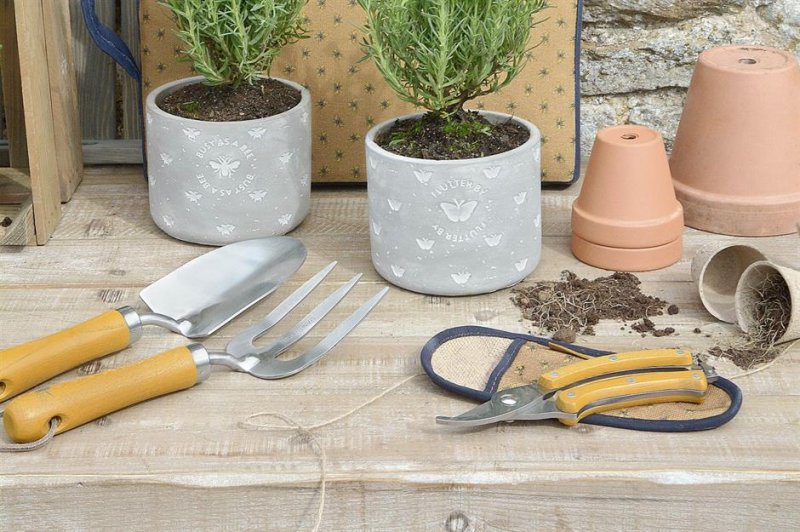
Gardening is a source of immense joy, providing fresh produce, vibrant blooms, and a tranquil escape from the daily grind. However, it can also feel daunting, costly, or time-consuming, especially for those new to the craft. But what if we told you that maximizing your garden's potential doesn't require a green thumb handed down through generations or an endless budget? It simply requires a little ingenuity, a dash of creativity, and a willingness to embrace practical, easy-to-implement solutions.
From ingenious planting tricks to natural pest control, and from clever watering techniques to smart tool organization, this comprehensive guide offers 50 easy gardening hacks designed to simplify your efforts, save you money, and transform your outdoor space into a thriving, productive paradise. Whether you’re a seasoned horticulturist or just starting your first seed, these tips will help you cultivate an abundant and beautiful garden with minimal fuss.
I. Smart Planting & Seed Starting: Give Your Young Plants the Best Start
Getting seeds to sprout and thrive can be tricky. These hacks leverage common household items to create ideal environments for your tiny seedlings.
- Toilet Paper Roll Seed Starters: Cut toilet paper or paper towel rolls into 2-3 inch sections. Fill them with seed starting mix and plant your seeds. When ready to transplant, plant the whole roll – it will decompose in the soil.
- Egg Carton Seed Trays: Use cardboard egg cartons as biodegradable seed trays. Fill each cup with soil, plant seeds, and once seedlings are large enough, cut out each cup and plant directly into the garden.
- Newspaper Pots: Fold newspaper into small, biodegradable seedling pots. These are excellent for seedlings that don't like root disturbance.
- DIY Mini Greenhouses from Plastic Jugs: Cut the bottom off clear plastic milk or water jugs. Place them over newly planted seeds or tender seedlings to protect them from cold, wind, and pests, creating a humid mini-greenhouse effect.
- Popsicle Stick Plant Labels: Use old popsicle sticks as durable, eco-friendly plant labels. Write plant names with a permanent marker.
- Even Seed Spacing with a Ruler: For perfectly spaced rows, use a ruler or a marked stick as a guide when sowing seeds.
- Sanding Tiny Seeds for Even Distribution: Mix tiny seeds (like carrots or lettuce) with fine sand before scattering. The sand helps distribute them more evenly, preventing overcrowding.
- Pre-Sprout Seeds on a Paper Towel: For erratic germinators, place seeds between moist paper towels, seal in a plastic bag, and keep warm. Once they sprout, carefully transfer them to soil.
- Clustering Plants for Pollination: Plant certain crops like corn or squash in blocks or clusters rather than long rows. This improves wind and insect pollination, leading to better yields.
- Upside-Down Planting for Tomatoes/Strawberries: For limited space or easy harvesting, try planting tomatoes or strawberries in upside-down planters. Gravity aids growth and directs water efficiently.
II. Watering Wisely: Maximize Efficiency and Moisture Retention
Water is life for your garden. These hacks help you conserve water and ensure your plants get just the right amount.
- DIY Drip System with Plastic Bottles: Poke small holes in the bottom third of a plastic water bottle. Bury the bottle next to a plant with the cap exposed, then fill with water. It will slowly release water directly to the roots.
- Wine Bottle Slow Drippers: Insert an inverted wine bottle (filled with water) into the soil next to a plant. The slow release provides consistent moisture, great for vacation watering.
- Coffee Filters in Pots for Drainage: Place a coffee filter at the bottom of planting pots before adding soil. This prevents soil from washing out through drainage holes while still allowing water to escape.
- Diapers for Moisture Retention in Pots: Line the bottom of large planters with a clean, unused disposable diaper (plastic side down). The super-absorbent polymers will soak up excess water and release it as the soil dries, keeping plants hydrated longer.
- Rain Barrel Collection: Set up a rain barrel to collect rainwater from your gutters. Rainwater is naturally soft and chlorine-free, ideal for plants, and reduces your water bill.
- Deep Watering Schedule: Instead of frequent, shallow watering, water deeply and less often. This encourages roots to grow deeper, making plants more resilient to drought.
- Finger Test for Soil Moisture: Before watering, stick your finger about an inch or two into the soil. If it feels dry, it's time to water. This prevents over or under-watering.
- Mulch for Moisture Retention: Apply a 2-4 inch layer of organic mulch (shredded leaves, straw, wood chips) around plants. Mulch suppresses weeds, regulates soil temperature, and significantly reduces water evaporation.
III. Soil & Nutrient Boosts: Feed Your Garden Naturally
Healthy soil is the foundation of a thriving garden. These hacks enrich your soil with readily available organic materials.
- Coffee Grounds for Acid-Loving Plants: Sprinkle used coffee grounds around acid-loving plants like blueberries, hydrangeas, and roses. They add nitrogen and slightly acidify the soil.
- Banana Peels for Potassium: Bury banana peels near blooming or fruiting plants. They are rich in potassium, which is essential for flower and fruit development.
- Eggshells for Calcium & Pest Deterrence: Crush eggshells and add them to the soil for a calcium boost, preventing blossom end rot in tomatoes. A ring of crushed eggshells around plants can also deter slugs and snails.
- Used Tea Bags for Nutrients: Bury used tea bags directly into the soil. They add nitrogen, tannins, and other beneficial nutrients, and can also help retain moisture.
- Start a Simple Compost Pile: Begin a small compost pile with kitchen scraps (fruit/veg peels, coffee grounds, tea bags) and yard waste (leaves, grass clippings). Composting creates rich, free fertilizer.
- "Chop and Drop" Pruning for Fertilizer: Instead of removing pruned plant material or weeds (without seeds), chop them into small pieces and let them fall around the base of the plant. They will decompose and return nutrients to the soil.
- Epsom Salt for Lush Growth: Dissolve a tablespoon of Epsom salt in a gallon of water and use it to water plants (especially roses, tomatoes, peppers). The magnesium promotes greener leaves and more abundant blooms/fruits.
- Wood Ash for Potassium (Use sparingly): If you have a fireplace, wood ash (from untreated wood) can add potassium and trace minerals to your soil. Use sparingly and avoid on acid-loving plants, as it raises pH.
- Newspaper as a Weed Barrier: Lay several sheets of newspaper directly on the soil before adding mulch. It smothers weeds, prevents new ones from sprouting, and eventually decomposes.
- Layer Cardboard for No-Dig Beds: For new garden beds, lay down a thick layer of cardboard directly on grass/weeds. Wet it thoroughly, then layer with compost, soil, and organic matter. This "lasagna gardening" method suppresses weeds and builds rich soil without digging.
IV. Natural Pest & Disease Control: Protect Your Plants Organically
Keep unwanted visitors at bay without resorting to harsh chemicals with these simple, effective methods.
- Beer Traps for Slugs: Bury shallow dishes (like tuna cans) at soil level and fill with beer. Slugs are attracted to the yeast, fall in, and drown.
- DIY Garlic Spray for Pests/Fungus: Blend garlic cloves with water, strain, and add a little dish soap. Spray on plants to deter various pests and some fungal issues.
- Soap Spray for Aphids: Mix a few drops of mild dish soap with water in a spray bottle. Spray directly on aphids to suffocate them.
- Companion Planting for Pest Deterrence: Plant marigolds to repel nematodes and whiteflies, nasturtiums to attract aphids away from other plants, or basil near tomatoes to deter tomato hornworms.
- Aluminum Foil Strips to Repel Pests: Drape strips of aluminum foil between rows or tie them to stakes near susceptible plants. The reflective light disorients and repels aphids, squash bugs, and other flying insects.
- Hand-Picking Pests: For larger pests like tomato hornworms or slugs, the simplest method is often the most effective: put on gloves and pick them off by hand.
- Introduce Beneficial Insects (e.g., Ladybugs): Purchase or attract beneficial insects like ladybugs (which feast on aphids) or praying mantises.
- Baking Soda for Powdery Mildew: Mix 1 teaspoon of baking soda with 1 quart of water and a few drops of liquid soap. Spray on plants affected by powdery mildew.
- Diatomaceous Earth for Crawling Pests: Sprinkle food-grade diatomaceous earth around the base of plants. Its sharp, microscopic particles dehydrate and kill crawling insects like slugs, snails, and ants.
- Sticky Traps from Recycled Materials: Cut yellow plastic (like from a milk jug), coat with a sticky substance (e.g., petroleum jelly or Tanglefoot), and hang near plants to trap flying insects.
V. Tool Care & Organization: Keep Your Gear Ready for Action
Well-maintained tools make gardening easier and safer. These hacks ensure your equipment lasts longer and is always within reach.
- Sand Bucket for Tool Cleaning/Rust Prevention: Fill a bucket with play sand and a cup of mineral oil. After use, plunge your tools into the sand; it cleans off dirt and lightly oils them, preventing rust.
- Brightly Colored Tool Handles: Paint the handles of your garden tools in bright, fluorescent colors. This makes them easy to spot if you accidentally leave them in the garden.
- Hanging Tools on a Pegboard/Wall: Utilize vertical space in your shed or garage with a pegboard or simple hooks. This keeps tools organized, off the floor, and easy to grab.
- Sharpen Tools Regularly: Keep pruners, hoes, and shovels sharp. A sharp tool makes clean cuts and requires less effort, reducing strain on you and plants.
- Use a Kneeling Pad/Cushion: Save your knees from hard ground. An old foam kneeling pad, cushion, or even an old yoga mat can make weeding and planting much more comfortable.
- Old Bucket for Weeding: Keep a sturdy 5-gallon bucket nearby when weeding. It's perfect for collecting weeds, small rocks, or carrying tools.
VI. General Garden Genius & Upcycling: Creative Solutions for Common Challenges
Embrace resourcefulness with these miscellaneous hacks that add efficiency and charm to your garden.
- DIY Trellises from Branches/Sticks: Collect sturdy branches or sticks from your yard and use them to create rustic, natural trellises for climbing plants like peas, beans, or cucumbers.
- Plastic Bottle Cloches for Frost Protection: Cut the bottom off large plastic bottles and use them to cover tender plants when unexpected frost threatens.
- Old Tires as Planters/Raised Beds: Repurpose old tires (ensure they are clean and free of chemicals) as quirky planters. They retain heat well and are great for potatoes or herbs.
- Test Seed Viability Before Planting: If you have old seeds, test their viability by placing a few on a moist paper towel inside a plastic bag. If they sprout within a week or two, they're good to plant.
- Keep a Garden Journal: Jot down what you planted, when, where, and how it performed. Note pest issues, successful treatments, and harvest dates. This record is invaluable for planning future seasons.
- Plant Supports from Old Pantyhose/T-shirts: Cut old pantyhose or soft cotton t-shirts into strips. These stretchy, soft materials are perfect for gently tying up plants to stakes or trellises without cutting into stems.
Conclusion
Cultivating a thriving garden doesn't have to be an arduous or expensive endeavor. By embracing these 50 easy gardening hacks, you can simplify your routine, conserve resources, and enhance the health and productivity of your plants. From repurposing household items to adopting age-old organic practices, each tip is designed to empower you to get the most out of your green space. So roll up your sleeves, experiment with these clever solutions, and watch your garden flourish with newfound vitality.
Happy gardening!







0 Comments
Post Comment
You will need to Login or Register to comment on this post!